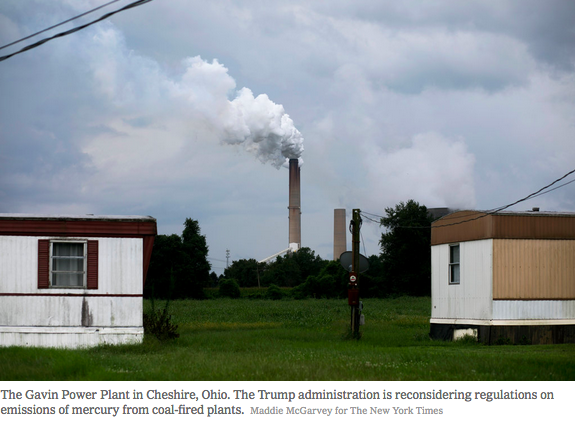WASHINGTON — When writing environmental rules, one of the most important calculations involves weighing the financial costs against any gains in human life and health. The formulas are complex, but the bottom line is that reducing the emphasis on health makes it tougher to justify a rule.
Last week the Trump administration took a crucial step toward de-emphasizing the life and health benefits in this calculus when the Environmental Protection Agency said it would rethink a major regulation that restricts mercury emissions by coal-burning power plants.
The 2011 mercury rule — based on decades of research showing that mercury damages the brain, lungs and fetal health — is among the costliest but most effective clean-air policies put forth by the Environmental Protection Agency. Utilities estimate they have spent $18 billion installing clean-air technology, and mercury pollution has fallen by nearly 70 percent.
Modifying the rule could have an impact far beyond any immediate concerns about the release of toxic mercury into the air and water. In fact, the re-evaluation fits into a far-reaching administration strategy to loosen environmental rules affecting countless other industries for years to come by adjusting the factors used to judge the benefits to human health that the rule has brought.




